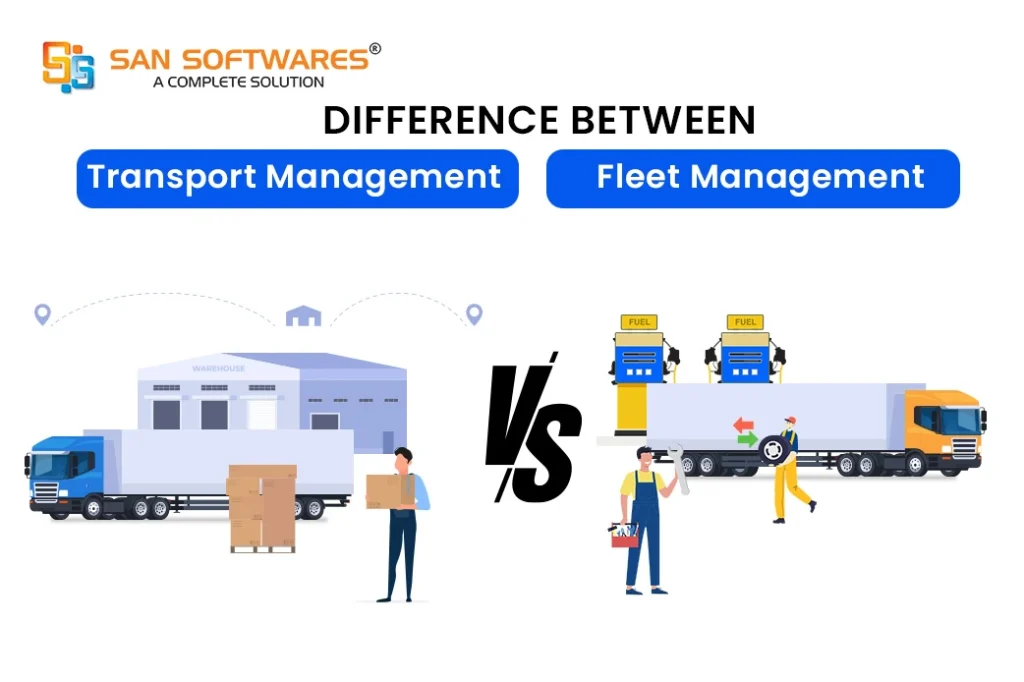
When it comes to the sphere of logistics and supply chain operations, the terms transport management and fleet management are quite similar. However, they differ in their roles regarding the general concept of Logistics Management Systems. Differentiating between these two concepts is important for companies that intend to increase efficiency within their operations. This blog will focus on questions such as “Is fleet management a transport functionality?” and “What is the difference between transport management and logistics?”
Transportation management refers to the arrangement, implementation, and efficiency of transferring goods from one place to another. This is usually done through a process referred to as a Transportation Management System, which enables organizations to handle the supply chain's transporting function. The primary objectives of transport management include:
• Route Optimization: Planning the most efficient routes to minimize travel time and fuel consumption.
• Carrier Selection: Choosing the best carriers based on cost, performance, and service levels.
• Load Planning: Maximizing available vehicle space to reduce the number of trips..
• Shipment Tracking: Monitoring the movement of goods in real-time to ensure timely deliveries and manage exceptions.
Transport management focuses on the logistics of moving goods and involves coordinating with various stakeholders, including suppliers, carriers, and customers. It aims to ensure that goods are delivered on time, at the lowest possible cost, and with the highest level of service. This makes transport management a critical component of transport & logistics fleet management.
Fleet management, conversely, refers to the administration and coordination of a company’s vehicle fleet. This includes a wide range of activities to ensure the optimal performance and maintenance of the vehicles used in transporting goods or services. This is often referred to as fleet management transport and plays a crucial role in logistics fleet management.
Critical aspects of fleet management include:
• Vehicle Maintenance: Scheduling regular maintenance and repairs to keep the fleet in good condition.
• Fuel Management: Monitoring fuel consumption and implementing strategies to reduce fuel costs.
• Driver Management: Training and managing drivers to ensure safety and compliance with regulations.
• Telematics: Using GPS and other technologies to track vehicle locations, monitor driving behaviour, and optimize fleet performance.
Fleet management is critical for businesses relying on transport fleets to deliver services efficiently. Whether managing an office or a transportation fleet, ensuring vehicles are in optimal condition is key to reducing costs and improving service delivery.
To better understand the distinctions between transport management and fleet management, let’s delve into some specific differences:
• Transport Management: Primarily concerned with the logistics of moving goods, including route planning, carrier selection, and shipment tracking. It focuses on optimizing the transportation process to ensure timely and cost-effective deliveries.
• Fleet Management: Focuses on the vehicles used in transportation, ensuring they are well-maintained, fuel-efficient, and operated by skilled drivers. It aims to maximize the efficiency and lifespan of the transport fleets.
• Transport Management: The main objectives include minimizing transportation costs, optimizing routes, and ensuring timely deliveries. It involves strategic planning and coordination with various stakeholders.
• Fleet Management: The primary objectives are maintaining the vehicle fleet, reducing operational costs, and ensuring safety and compliance. It involves managing the day-to-day operations and maintenance of the fleet. This is especially important in transportation and fleet management systems, where vehicle performance directly impacts business outcomes.
• Transport Management: Utilizes Transportation Management Software to plan, execute, and optimize transportation operations. Transportation fleet management systems provide functionalities such as route optimization, load planning, and shipment tracking.
• Fleet Management: Employs telematics, GPS tracking, and fleet management software to monitor vehicle performance, manage fuel consumption, and ensure driver safety. These tools provide real-time data and analytics to optimize fleet operations, integral to logistics fleet management systems.
• Transport Management Involves high-level strategic decisions, such as selecting carriers, negotiating contracts, and optimizing logistics networks. It requires close coordination with external partners, such as suppliers and carriers.
• Fleet Management: Involves day-to-day operational tasks, such as scheduling maintenance, tracking fuel usage, and monitoring driver behaviour. It focuses on internal processes and the efficient use of company-owned or leased vehicles, playing a key role in corporate transport management.
The management of fleets is a subcategory of transportation functionality, as it is a core element of any transportation process. Whereas in transport management, the emphasis is on the movements of goods and the proper functioning of the logistical flow, fleet management ensures the proper functioning of the vehicles used in moves. Both functions are mutually inclusive and critical to a transportation and fleet management network.
Transport management can be considered a sub-sector of logistics administration. Logistics covers the entire supply chain, from purchasing products, storage, and distribution to transporting the products. Transport management is a subfield of logistics that deals specifically with the movement of products within this framework. While logistics management involves overall planning and coordination of the supply chain, transportation fleet management focuses solely on ensuring the effective and efficient transport of goods and services at the lowest cost.
Only when we realize the differences between transport and fleet management can a business know how to arrange its human and financial resources, deploy the best strategies, and apply the right technologies to optimize its supply chain management plans. Whether managing fleet transport in shipping or logistics, investment in fleet and transport management systems will translate to increased efficiency, cost reduction, and long-term gains in the competitive logistics industry.

SAN Softwares is a company dedicated to providing complete software solutions to Corporate and end-user customers.

SAN Softwares is a company dedicated to providing complete software solutions to Corporate and end-user customers.

© 2026 SAN Softwares Pvt Ltd | All Right Reserved